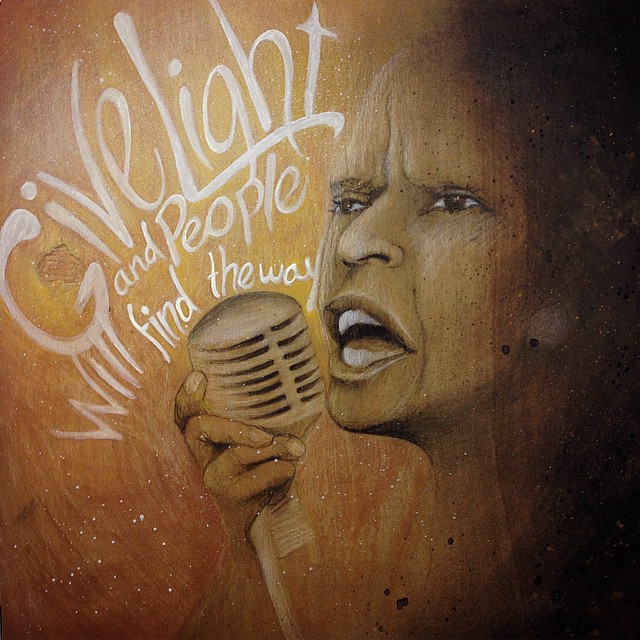On Haggis and Donald Trump
On this feast day of Robert Burns, less than a week into the second Trump administration, things are not well. ICE is going nuts, the CDC failed to issue its “Morbidity and Mortality Weekly Report” for the first time since 1960 (MMWR is where the medical community first was alerted to what came to be known as AIDS), hundreds of seditionists and insurrectionists were pardoned or had their sentences commuted, Trump seems bent on taking FEMA – an agency whose mission to is to care for neighbors in need – and turn it into a quid-pro-quo program where friends are helped and others left to cry alone, and now the dismissal of 17 inspectors general.
And that’s just for starters.
On this feast day of Robert Burns, one need not wonder what Burns would have to say about Mar-a-Lago and its Lord. In his poem “My Father was a Farmer,” he lays out his own set of values,
My father was a farmer upon the Carrick border, O,And carefully he bred me in decency and order, O;He bade me act a manly part, though I had ne’er a farthing, O;For without an honest manly heart, no man was worth regarding, O.
Hmmm . . . one’s worth is not based on the size of your purse? “Unpossible!” says the Lord of Mar-a-Lago.
Later in the poem, after describing how his efforts to improve his financial situation were less than successful, and unmoved by his lack of money or what society says his values should be, he says this about himself:
But cheerful still, I am as well as a monarch in his palace, O,Tho’ Fortune’s frown still hunts me down, with all her wonted malice, O:I make indeed my daily bread, but ne’er can make it farther, O:But as daily bread is all I need, I do not much regard her, O.
“Unpossible!” says the Lord of Mar-a-Lago. “How can you possibly be cheerful without money?”
The final stanza makes the contrast between Burns and the Trump-like Lords of his day abundantly clear:
All you who follow wealth and power with unremitting ardour, O,The more in this you look for bliss, you leave your view the farther, O:Had you the wealth Potosi boasts, or nations to adore you, O,A cheerful honest-hearted clown I will prefer before you, O.
What is delightful about this poem is that Burns wasn’t speaking metaphorically, but autobiographically. Burns was a working farmer-poet, never wealthy himself, and oft in need of additional income. Writing poetry definitely helped, as various parts of Edinburgh’s High Society oooh-ed and ahhh-ed over his writing and were willing to pay for it.
But even so, Burns had no problem taking aim at their pretentiousness. His famous “Address to a Haggis” (recited far and wide at Burns celebrations each year on this day) is as much a take down and those who adore over-wrought fancy cooking as it is praise of a peasant dish. Burns writes about this sheep’s stomach filled with sheep’s lung, heart, and liver, along with oats, onions, and all manner of spices and herbs, as if it were the finest French cuisine, only to slam those who prefer “fine dining” over hearty fare like the haggis. Haggis, like honest working folks, has substance and nourishment; those who love their fine cuisine he calls devils, as their meal is an inappropriately thin plate of unhealthy trash.
My family roots are German, not Scottish, but “Address to a Haggis” resonates strongly with me. My late grandmother was a delightful baker with a heart of hospitality and always ready to put together a quick coffee cake if guests dropped by. As a daughter of the depression, she had a myriad of ways to stretch her ingredients and her budget. One of the favorite dishes she made that I only ever had at her home was a beef stew using beef heart and tongue, rather than more common cuts of beef. She could get the heart and tongue for next to nothing (or simply for nothing, as cattle-ranching parishioners who knew how badly her pastor-husband was paid would save these for her as an extra gift), and she turned them into a thing of beauty. Alas, she is gone and the recipe with her, though I can still smell it in my mind and taste it in my soul.
On this feast of Robert Burns, in these troubling times when all seems adrift, Burns’ injunction to prefer “a cheerful honest-hearted clown” to folks like the Lord of Mar-a-Lago seems all the more necessary. I invite you to fill your glass with a beverage of your choice, because it’s time to ding.
The roots of dinging at our home go back more than two decades . . .
It started on a Friday when The Kid was not yet two, and we had finally sat down to dinner at the end of a long week for all of us. Mrs. Dr. Peterr raised her glass, I raised mine, and in a quiet, exhausted, but happy voice she smiled at me and said “To the weekend.” “To the weekend,” I echoed, touching my glass lightly against hers. Then, from the high chair, a little voice chimed in loudly and proudly, punctuating each word with a swing of his sippy cup: “To. The. Weekend! Now ding with me!”
And so it is at our house, especially on Fridays: We have to ding.
The beverages vary widely, from glass to glass and from day to day – juice, wine, water, sparkling cider, beer, milk, scotch, etc. – and so do the toasts. Some days, we toast each other; other days we toast something great that has happened. Some days, the toasts bring happy thoughts, and on other days, they carry a note of sadness and loss. Some toasts are short, simply naming the person or thing for which we are grateful. Others are longer, and take on Dr. Seuss-like rhymes and rhythms.
The one thing they have in common, though, is a sense of shared gratitude. Mark Twain put it like this: “To get the full value of joy, you must have someone to divide it with.” Science fiction writer Spider Robinson takes Twain one step further: “Shared joy is increased; shared pain is lessened.”
It’s Friday, it’s the end of a rollercoaster of a week, it’s five o’clock somewhere, and we’ve got to ding.
Today is Saturday, not Friday, and it has indeed been a long, long week, so we’ve got to ding. With all that has happened in the last seven days, I can’t help but think that Robert Burns is lifting a glass of Scotch Drink with us today. So fill your own glass, raise it high, and join me in a toast.
Ladies and gentlemen,
. . . friends whom I know well and friends I have only just met,
. . . friends who love to chat and silent friends who lurk in the corners,
. . . friends who agree and friends who argue,
. . . friends who challenge my thinking and friends who confirm it,
. . . friends who trust each other with their open, honest ideas,
. . . friends who come here looking for conversation to get their thoughts in order:
To the poet,
. . . the farmer,
. . . the bard of Scotland,
. . . Robert Burns!
*DING*
Please offer your own toasts, your own odes to the foods of your hearts, and your own perspectives on the values of Lord of Mar-a-Lago and his ilk in the comments.



